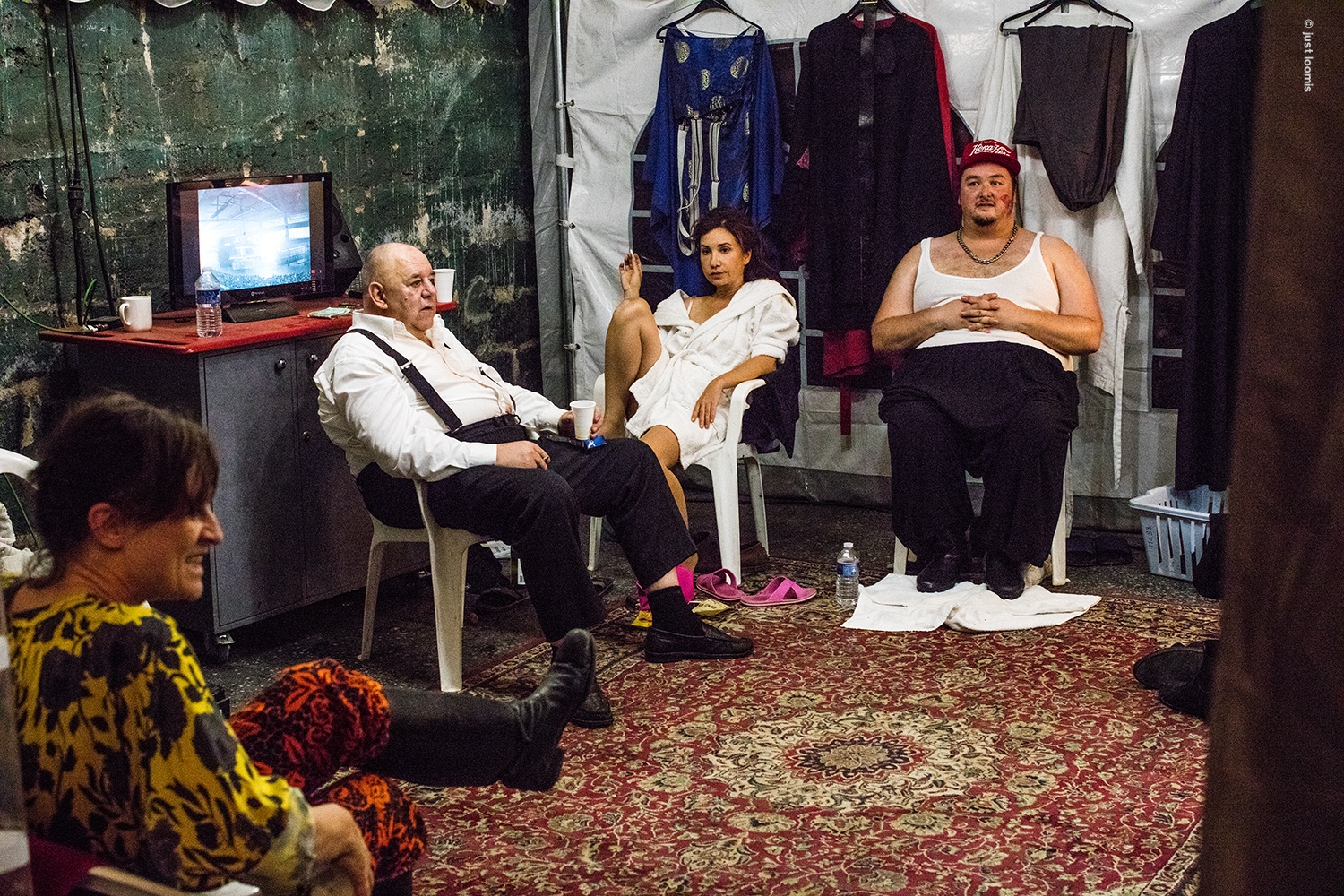


He was always up for a fight, drank brandy by the pint and, it has been said, there were never less than three women in his entourage to ensure his “emotional stability”: Edmund Kean, a drunkard and womanizer and, without question, the most ingenious Shakespeare performer in early 19th century England! It wasn’t him who played “Hamlet” or “Othello”, no, it was the role that played him! The public thanked him with applause and worship. His potential was eventually mirrored by the bourgeoisie emerging from the industrial revolution, creating a specific celebrity cult that today finds its apotheosis in pop culture and its simulation in casting programmes. Kean was one of the first media superstars – celebrated and hated by the papers, his private excesses and love life was observed and documented. However, despite being accepted by the press and audience, he could never achieve equality with the upper classes he played for. Kean was from a poor background, a product of the dark side of industrialisation: his mother was “a street whore and amateur actress”, whilst his destitute father committed suicide when Kean was only a few months old. Thus the star, despite his artistic and even commercial success, roamed around the parallel universe of London’s poor districts frequenting the numerous pubs. There he founded, together with his cronies – travelling actors and street performers – the “Wolves’ Club”, the prototype of a revolutionary cell. To “hate the nobility” and to tear down all social barriers was the Wolves’ declared objective, which they carved into the pub's tables. Kean, torn between classes, the actor who searched for his role and the “reality of being” on the social stage with an excessive intensity, is now being rediscovered by Frank Castorf at the Volksbühne. The experience of the artistic avant-gardes and pop star revolutionaries of the 20th century, combined with their effort to utilise their art to impact everyday life in a revolutionary way, provide a background for the play and link our present to the time of Edmund Kean, which he was well ahead of. Based on the play written by Alexandre Dumas the elder, adapted by Lothar Trolle.
With: Georg Friedrich (Prinz von Gayles), Axel Wandtke (Graf Koefeld), Jeanette Spassova (Gräfin Koefeld), Christoph Letkowski (Lord Mewill), Alexander Scheer (Edmund Kean), Silvia Rieger (Lady Amy Mewill), Irina Kastrinidis (Mary Kean), Mandy Rudski (Anna Demby), Mex Schlüpfer (Salomon), Andreas Frakowiak (Pistol), Luise Berndt (Die Wölfin Kitty), Inka Löwendorf (Die Wölfin Amanda), Margarita Breitkreiz (Die Wölfin Amanda (alt.)), Henry Krohmer (Constabler) and Steve Binetti
Director: Frank Castorf
Stage Designer: Hartmut Meyer
Costumes: Jana Findeklee, Joki Tewes
Light Design: Torsten König
Dramaturgy: Sebastian Kaiser